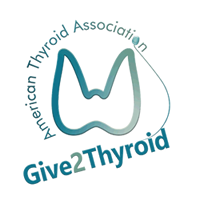BACKGROUND
Subclinical hypothyroidism is diagnosed when TSH levels are high but the thyroid hormone levels are still normal. It represents a mild form of hypothyroidism. Whether or not to treat subclinical hypothyroidism is controversial as benefits of treating have not been proven in many cases. One area particularly controversial is with patient symptoms. Overt hypothyroidism can cause symptoms such as tiredness, constipation, unexplained weight gain and may be associated with heart disease, elevated blood pressure, or high cholesterol. While some patients with subclinical hypothyroidism do not have symptoms, many do have significant symptoms that may seem out of proportion to their thyroid hormone abnormalities. Multiple studies were done in the past to answer whether treatment would help patients with subclinical hypothyroidism with significant symptoms, but they had looked at different outcomes using very different methods.
The aim of this study was to review and analyze the results of previously published studies on subclinical hypothyroidism to determine the association of thyroid hormone therapy with quality of life and thyroid related symptoms.
THE FULL ARTICLE TITLE:
Feller M et al 2018 Association of thyroid hormone therapy with quality of life and thyroid-related symptoms in patients with subclinical hypothyroidism: a systematic review and meta-analysis. JAMA 320:1349–1359. PMID:30285179.




